 Picking the best property management software isn’t easy.
Picking the best property management software isn’t easy.
Why?
Because you’re constantly bombarded with misleading advertising, trumped up demos, and bad information … from high-pressure sales to overpriced platforms to promises of “one size fits all.”
How do you ever find the software that’s right for you?
You start by asking the best of the best in the property management industry for their advice: real professionals who aren’t trying to sell you a thing. And that’s exactly what we did. What follows are …
20 property management experts answering just two question about how to select the best property management software:
- What’s the number one thing you should look for in property management software?
- What’s the biggest red flag?
These are not endorsements and we won’t mention a single product by name.
Instead, this is your personal guide to choosing the right software … and avoiding the pitfalls.
1. Sabrina Bower: President CIC Reports
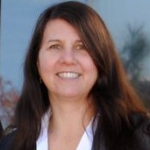 Property management software that has an open platform to third party services such as tenant screening, online payments, and utility billing is key in giving you control of your vendor selection. Ask if there are additional fees to use the integrations and if your vendor is not on their list, are they willing to talk to your provider’s technical group?
Property management software that has an open platform to third party services such as tenant screening, online payments, and utility billing is key in giving you control of your vendor selection. Ask if there are additional fees to use the integrations and if your vendor is not on their list, are they willing to talk to your provider’s technical group?
One of the biggest red flags is a property management software company that traps your data. If you want to switch — but all of your tenants, vendors, maintenance, and accounting information can’t be exported — you may find it too cumbersome to re-input all the data thus being a hostage to a platform you don’t like.
2. Jason Hartman: CEO at JasonHartman.com
 While it might sound obvious and general, ease of use and low costs are hands down the most important elements to keep in mind. You should always expect a learning curve with new software, but trying it out for yourself will tell you if that curve is a burden that will force you to change systems down the road.
While it might sound obvious and general, ease of use and low costs are hands down the most important elements to keep in mind. You should always expect a learning curve with new software, but trying it out for yourself will tell you if that curve is a burden that will force you to change systems down the road.
Again, don’t overthink it. Difficulty of use and high costs are two red flags that you’ll have to change systems in future. That’s a huge hassle; so focus on getting it right the first time!
3. Mark Ferguson: Founder Invest Four More
 I think the first thing someone should do is figure out what they want the software for. What is your biggest challenge managing rentals and what feature would help with that challenge? We don’t use a specific rental property software program because QuickBooks keeps track of expenses and income.
I think the first thing someone should do is figure out what they want the software for. What is your biggest challenge managing rentals and what feature would help with that challenge? We don’t use a specific rental property software program because QuickBooks keeps track of expenses and income.
I also only have 14 rentals at the moment, so it is not a huge operation. If I had 100 or 1,000 rentals I would most likely want a specific rental property software that helped me keep track of rent payments and had more features.
Ease of use is the biggest issue with many programs. Having many features is awesome, unless you don’t need those features and it makes the program too complicated. I have tried out a few programs and they had so many features I was overwhelmed with where to start. If you don’t need an entire software platform, that’s your big red flag right there.
4. Andrew Cordle: Founder National Association of Real Estate Investors
 Most important feature? I would say, “How real time is it?” If the software “updates” on some sort of delayed time cycle, you can easily end up with a mess on your hands. And as for the accounting section of the software, “Does it have its own or will it tie into QuickBooks?” There’s no right answer to that question, except what works best for you.
Most important feature? I would say, “How real time is it?” If the software “updates” on some sort of delayed time cycle, you can easily end up with a mess on your hands. And as for the accounting section of the software, “Does it have its own or will it tie into QuickBooks?” There’s no right answer to that question, except what works best for you.
On the other side, I hate large upfront-fee software. I don’t mind paying for the software itself when I buy it. But beware of plans that come in preset limits or ranges. Instead, make sure you can pay on a per-house fee.
5. Mark Juleen: The Apartment and Internet Marketing Nerd
 Everything depends on the size of your company and your objectives. We oversee 5,000 units in a 20 community portfolio, so we look for software that allows us to integrate with other best-of-breed solutions for screening, payments, and marketing. Some are better than others, and some newer players have open APIs that make it even easier.
Everything depends on the size of your company and your objectives. We oversee 5,000 units in a 20 community portfolio, so we look for software that allows us to integrate with other best-of-breed solutions for screening, payments, and marketing. Some are better than others, and some newer players have open APIs that make it even easier.
The other thing we look for is what’s all included vs what gets nickeled and dimed as add on costs. For example, we recently converted to a new program and were able to get accounting, online leasing tools, and other tools all included in their base price. Many of these features are extras that cost more with other systems.
Red flags to me are the contracts. Be sure to understand the terms you’re locked into and any extra integration fees that could be charged.
6. Joe Samson: Joe Samson & Associates
 Having a visual dashboard that provides a clear overview of tasks and activities to be handled is extremely important. But it is even more important to be able to tag a person who is going to spearhead the task and take responsibility for it.
Having a visual dashboard that provides a clear overview of tasks and activities to be handled is extremely important. But it is even more important to be able to tag a person who is going to spearhead the task and take responsibility for it.
Most of the time simple means better user experience. Highly customizable interfaces are only beneficial for a very small segment of property managers.
The bells and whistles may look very attractive at first glance, but they take way too much time to properly configure. Therefore, I have either abandoned complicated property management softwares in the past or shied away from trying it all together.
7. Victor Lund: CEO REtechnology
 The number one thing in property management software is accounting compliance to insure that rental revenue and expenses are clearly tracked. Number two is a property owner portal so you can see the status of units under management at any time. Our preference is for reports to be pushed to property owners at whatever cadence they choose — daily, weekly, monthly, or as things happen, etc.
The number one thing in property management software is accounting compliance to insure that rental revenue and expenses are clearly tracked. Number two is a property owner portal so you can see the status of units under management at any time. Our preference is for reports to be pushed to property owners at whatever cadence they choose — daily, weekly, monthly, or as things happen, etc.
Biggest flag to avoid is system security. You need to select a vendor who has hacker proof systems. These systems contain a lot of personally identifiable information that could cause thousands of dollars in damages if not protected
8. Bart Sturzl: President of National Association of Residential Property Managers
 The number one thing you should look for is all about you: “Does it handle your needs?” You don’t need a Cadillac when a Chevy will do. And make sure it is a professional property management company also, not just a professional looking piece of software.
The number one thing you should look for is all about you: “Does it handle your needs?” You don’t need a Cadillac when a Chevy will do. And make sure it is a professional property management company also, not just a professional looking piece of software.
The biggest red flag you should avoid is the hard sale for any upgraded modules.
9. Dan Pipito: ez Landlord Forms
 The number one thing anyone should look for in a property management software is EeeeZ of use (see what I did there). From beginner to veteran, you should have access to the most current legal forms that are updated to meet your state’s rules and regulations. Also, superior customer support is the key to a great property management software, so that anyone can be helped quickly and professionally. Being a landlord is a business and an investment, your time is money.
The number one thing anyone should look for in a property management software is EeeeZ of use (see what I did there). From beginner to veteran, you should have access to the most current legal forms that are updated to meet your state’s rules and regulations. Also, superior customer support is the key to a great property management software, so that anyone can be helped quickly and professionally. Being a landlord is a business and an investment, your time is money.
In property management software, the biggest red flag to avoid is having to give payment information upfront while being pressured into a trial period that doesn’t let you really know what you’re getting.
10. Aaron Kardell: CEO Homespotter
 It’s often said of CRMs that the best one is the one your salespeople will actually use. The same axiom hold true for property management software: be sure to pick a property management system that is user friendly enough that your team will actually use it.
It’s often said of CRMs that the best one is the one your salespeople will actually use. The same axiom hold true for property management software: be sure to pick a property management system that is user friendly enough that your team will actually use it.
What’s the biggest red flag that you should avoid?
Make sure to really understand how tenant screening works in the system. The difference to your bottom line in getting this right or wrong can be enormous.
11. Tyler Zey: Easy Agent Pro
 Without naming names, there are only a couple of platforms I’d recommend. Why? Because the user interfaces are friendly on both. The first has an in-depth and intuitive interface and — though I’ve never taken part in their webinars or training — I’ve heard nothing but wonderful things. The second is great if price is a big concern for you and you can’t afford something as expansive.
Without naming names, there are only a couple of platforms I’d recommend. Why? Because the user interfaces are friendly on both. The first has an in-depth and intuitive interface and — though I’ve never taken part in their webinars or training — I’ve heard nothing but wonderful things. The second is great if price is a big concern for you and you can’t afford something as expansive.
My biggest focus with software in general is the scope of its capabilities, the price, and how intuitive it is. If it’s intuitive software you spend less time having to learn the technical aspect of the platform and more time actually running your business.
The biggest red flag for me would be lack of flexibility, especially when it comes to the little things. For example not being able to list out all a property’s amenities in detail. Or not being able to separate your renter and owner profiles for one unit. Those are little things I’ve come across that separate certain platforms from the rest of the pack. It’s the little things that matter.
12. Jim Smith:CEO/Broker The Property Management Company
 Accounting. It must be powerful enough to handle all aspects, including ability to transfer funds between properties, budgeting, receivables/payables, invoices, customizable reports, both cash and accrual methods, CAM and other recurring charges, and many other features that only a few software programs truly provide.
Accounting. It must be powerful enough to handle all aspects, including ability to transfer funds between properties, budgeting, receivables/payables, invoices, customizable reports, both cash and accrual methods, CAM and other recurring charges, and many other features that only a few software programs truly provide.
The majority of the current software platforms have a really nice layout and front end appearance. The challenge is most are like a Hollywood movie set: they look nice from the street view, but walk inside and there is no depth; just a façade held up by a few 4X4s.
Establish a list of at least ten scenarios you want your software to do and then find active users to sit down and see if the scenarios can be done (quality companies will gladly refer you to current clients). Do not just rely on the demos the companies provide. After the test drive, ask the their current users, “Knowing what you know now, would you buy this software again?”
13. Debbie Biery: EXP Realty
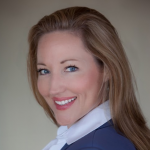 The number one thing property managers should look for in a PMS is ease of use. This doesn’t mean you should be able to master the entire platform in a weekend. Instead, identify what the 5-10 features most vital to your business are. Then, when you’re going through the demo, be sure you take the wheel to test whether or not they make sense to you. Everything else will just come with time and learning.
The number one thing property managers should look for in a PMS is ease of use. This doesn’t mean you should be able to master the entire platform in a weekend. Instead, identify what the 5-10 features most vital to your business are. Then, when you’re going through the demo, be sure you take the wheel to test whether or not they make sense to you. Everything else will just come with time and learning.
As obvious as it might sound, the biggest red flag would be poor reviews of a particular product. Do your homework, especially on user-generated sites like Google and impartial app-review websites. Also, beware of glowing reviews the PMS presents in their own marketing.
14. Julie Nelson: The Nelson Project
 The number one thing someone should look for in property management software is a complete suite. I guess this goes with most software programs today. You want a robust, fully integrated, all-in-one tool. Be willing to pay for the software that includes everything you need, otherwise you’ll just end up paying more – time and money – later on.
The number one thing someone should look for in property management software is a complete suite. I guess this goes with most software programs today. You want a robust, fully integrated, all-in-one tool. Be willing to pay for the software that includes everything you need, otherwise you’ll just end up paying more – time and money – later on.
The biggest red flag is if it lacks navigation ease. In other words, is it intuitive and user friendly. The only way to test it … is to test it: can you find what you’re looking quickly and easily? If not, then find one that makes navigational sense to you.
15. Trevor Mauch: Founder Carrot
 The number one thing someone should look for in a property management software isn’t the features it has … but possibly the features it doesn’t. I know that sounds counter intuitive, but I’ve gone down the wrong road myself too many times trying to choose something that has everything and the kitchen sink when in the end I really only needed 5% of what they had and would have been more successful with a more focused and simpler to use system.
The number one thing someone should look for in a property management software isn’t the features it has … but possibly the features it doesn’t. I know that sounds counter intuitive, but I’ve gone down the wrong road myself too many times trying to choose something that has everything and the kitchen sink when in the end I really only needed 5% of what they had and would have been more successful with a more focused and simpler to use system.
So write down on a piece of paper what inefficiencies you’re currently experiencing and rank them. Then place a monthly value on each one along with — if you could solve it — what that’d be worth to you.
The biggest red flag that you should avoid is when a company’s own blog hasn’t been updated in over a month and their design is out of 2005. This shows that they aren’t committed to improving their product or staying at the cutting edge. Technology changes so fast these days that having your system of record as a rental property owner or property management company be out of date and be neglected is a huge liability for you long-term. The more you can align with a company that you can tell has momentum toward keeping their product updated, the more secure you’ll be in knowing that the software will be as relevant and effective in five years as it is today.
16. Rachael Hite: Listing Depot
 How the information is accessed is the first thing you should pay attention to. Property management usually involves many team players who are critical in maintaining the success of the transaction. If the software is not smartphone friendly, it will be next to impossible to get everyone on the same page. Property management happens in the field and is coordinated with a variety of vendors. Mobile access is critical.
How the information is accessed is the first thing you should pay attention to. Property management usually involves many team players who are critical in maintaining the success of the transaction. If the software is not smartphone friendly, it will be next to impossible to get everyone on the same page. Property management happens in the field and is coordinated with a variety of vendors. Mobile access is critical.
Run from too many clicks! If you have to sit through too many webinars or training sessions to know how to work the product, the team will struggle. Great management software should be intuitive and require the least amount of clicks for team members in input or access data on a property. If it is too complicated, then the team (usually comprised of members with different technology skill sets) will not be cohesive.
17. Thomas Espy: International Editor at Tranio.com
 Look for flexibility and customizability, a comprehensive approach and array of functions (i.e. a program which can “do it all” in terms of the essentials), usable on many platforms (e.g. web-based with mobile app and cloud-based data storage), tier-pricing (especially if looking for free options) with no start-up fees or annual contracts, and online database and record security.
Look for flexibility and customizability, a comprehensive approach and array of functions (i.e. a program which can “do it all” in terms of the essentials), usable on many platforms (e.g. web-based with mobile app and cloud-based data storage), tier-pricing (especially if looking for free options) with no start-up fees or annual contracts, and online database and record security.
Beware of a difficult interface coupled with poor customer service and product training. Also watch out for any sort of “one size fits all” promises; few programs are 100% comprehensive out of the box. If someone tells you it is, that’s a huge red flag.
18. Nico Hohman: NextHome Discovery
 Look for integration and communication. A property management software should be able to integrate with some, if not most, of the existing software tools you use for your property management business. The best form of integration is one that allows everyone — from the the property manager, to the tenants, to the landlords, to the vendors — to communicate together in one place.
Look for integration and communication. A property management software should be able to integrate with some, if not most, of the existing software tools you use for your property management business. The best form of integration is one that allows everyone — from the the property manager, to the tenants, to the landlords, to the vendors — to communicate together in one place.
Look out for unresponsive design. Property managers are always on the go, working from their homes, their offices, their cars, and everywhere in between. You need software that can grow and adapt to wherever, however, and whenever you are working. The more nimble, agile, and flexible the software is … the better.
19. Anthony West: Moffitt Realty
 When comparing property management systems, ask yourself, “Does the software make processes more efficient and simplistic for you and your clients?” Or does it just further complicate everything? Look for options that allow free trials so that you can immerse yourself in the product and get a feel for how it operates.
When comparing property management systems, ask yourself, “Does the software make processes more efficient and simplistic for you and your clients?” Or does it just further complicate everything? Look for options that allow free trials so that you can immerse yourself in the product and get a feel for how it operates.
In this day and age, SAAS (software as a service) companies are developing better competitive business models that allow more flexibility for their customers. Many companies are switching to monthly subscriptions vs. year long contracts. Try to avoid being locked in for a long-term commitment if possible. This will allow you to try out a product for a bit of time without having too much skin in the game.
20. Lee Davenport: Learn with Lee
 The most vital aspect of picking new property management software to me is the ability to demo it without a financial commitment! Whether you have a portfolio of 10, 100 or 1,000 properties to manage, skipping the no-cost demonstration phase can leave you wasting money on software that may not fully serve your accounting, reporting, rent-collecting, maintenance or marketing needs (yes, there are softwares that cover all those points and more).
The most vital aspect of picking new property management software to me is the ability to demo it without a financial commitment! Whether you have a portfolio of 10, 100 or 1,000 properties to manage, skipping the no-cost demonstration phase can leave you wasting money on software that may not fully serve your accounting, reporting, rent-collecting, maintenance or marketing needs (yes, there are softwares that cover all those points and more).
If the demo is hard to figure out and operate on your own, do not buy into the claims that their team will train you to use it. We are headed into 2017 and there are enough software programs and apps that are user-friendly right out the box.
And note, I do not consider it a true demo if the vendor does all the maneuvering your team has to be able to massage and manipulate the program to see if it is really a good fit. Say, “Next!” and use what is easiest and most intuitive for your team.
Picking the Best Property Management Software
It’s true, picking the best the best property management software isn’t easy.
But if you follow the advice above, you’ll be well on your way to getting the right software for your business.
Along side of demoing the product for yourself and making sure it integrates with the other programs you use and that it’s mobile ready, just remember one thing: picking the best the best property management software for you is all about one thing … you. Property managers will want to ensure the system robustly supports trust accounting and an owner portal for their owners. DIY landlords do not need some of the bells and whistles included in property management software, and may opt for a landlord software solution instead which often will cost a bit less.
Don’t let anyone push you into a platform — no matter how many bells and whistles it has — if it doesn’t fit your needs.
Did we leave out your own best tip or what to avoid? Be sure to share it in the comments.

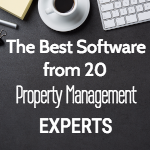
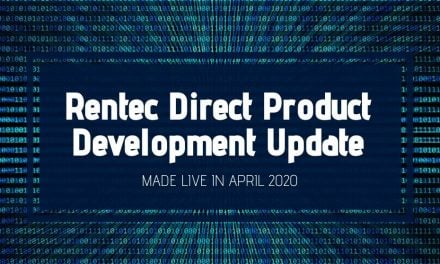
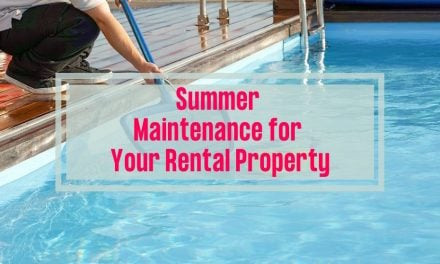



It is necessary that when inputting all the raw data in setting up the accounts for the first time (and learning along the way) that the customer not be charged for the service while it’s not functional and not being used. I knew in my situation that it would take me at least two months to set up the related accounts (since we have other things we must do during the limited hours of the day we have). A long “trial period” is necessary.
I think first and foremost you have to evaluate the service behind the platform. Even if you have an amazing platform it’s imperative that the service is also outstanding. When evaluating software just give the company a call and see how they answer your questions. If they offer a free trial, by all means use it, and while using it contact their support and test out the support during the trial so you know what you’ll be getting when you finish the trial.
Sure, making sure that they offer a long, free of charge trial, and a good support, seems like a good move, it still relies mostly on you. You’re the one who’s going to use it, and you need to make sure that it will really help you. Chasing down the easiest-to-use and cheapest software won’t do much for you. Just make sure that the software will help you with the stuff that you really need help with. Otherwise, it will be useless, and you’ll have to pay for it.
Useful article, keep up the good work.
I think it’s important to know your market, and what you need for it, in Calgary there’s a ton of competition. This is a great article, really appreciate all the good information.
Good point, Cody! Understanding your market is vital for success in real estate and property management.
This is a good post. I think a property management software should definitely have a good file management system as well as a notification system to keep track of things and keep the tenants updated too. Also the option to make a group also helps to build a community.
Fantastic article! Thanks for sharing
Fantastic post, appreciate the insight, and agree that a good crm / software solution would go a fantastically long way.
Good article. It points out all plus and minuses of a CRM. Here, in Romania also we use one, and without it, I might say I would have to change my job. Thank you for sharing!
You are very welcome, Paul. When I started as a property manager, property management software was either very expensive or lacking features. Today, a good property management software can really make a huge difference in time savings as well as being affordable. Thanks for your feedback.
Customer data security and privacy compliance should not go ignored. Research has found that compliance risk is the fifth most serious risk that is faced by the commercial real estate industry.
I liked that many experts said that the first thing you should pay attention to when choosing software is to assess the size of the company and your needs. Otherwise, even the best solution will lead to financial losses and disorder in the work. As for me, I think I found the software that solves the following main problems that the experts talked about:
1. Easily integrates with third-party platforms from Power BI to Tableau, which I think is very convenient.
2. Along with work management, it offers a solution for training and skills conversion, which solves the challenge Mark Ferguson mentioned.
3. It allows you to create great visualized reports and checklists, which has significantly increased the efficiency of the team. And here I agree with Joe Jameson that this is probably the most important service your software should provide.
Another point I would like to add from my personal experience is the ability to use the software offline as well as its availability in mobile phones. This greatly simplifies work in emergency situations and saves you time and nerves.